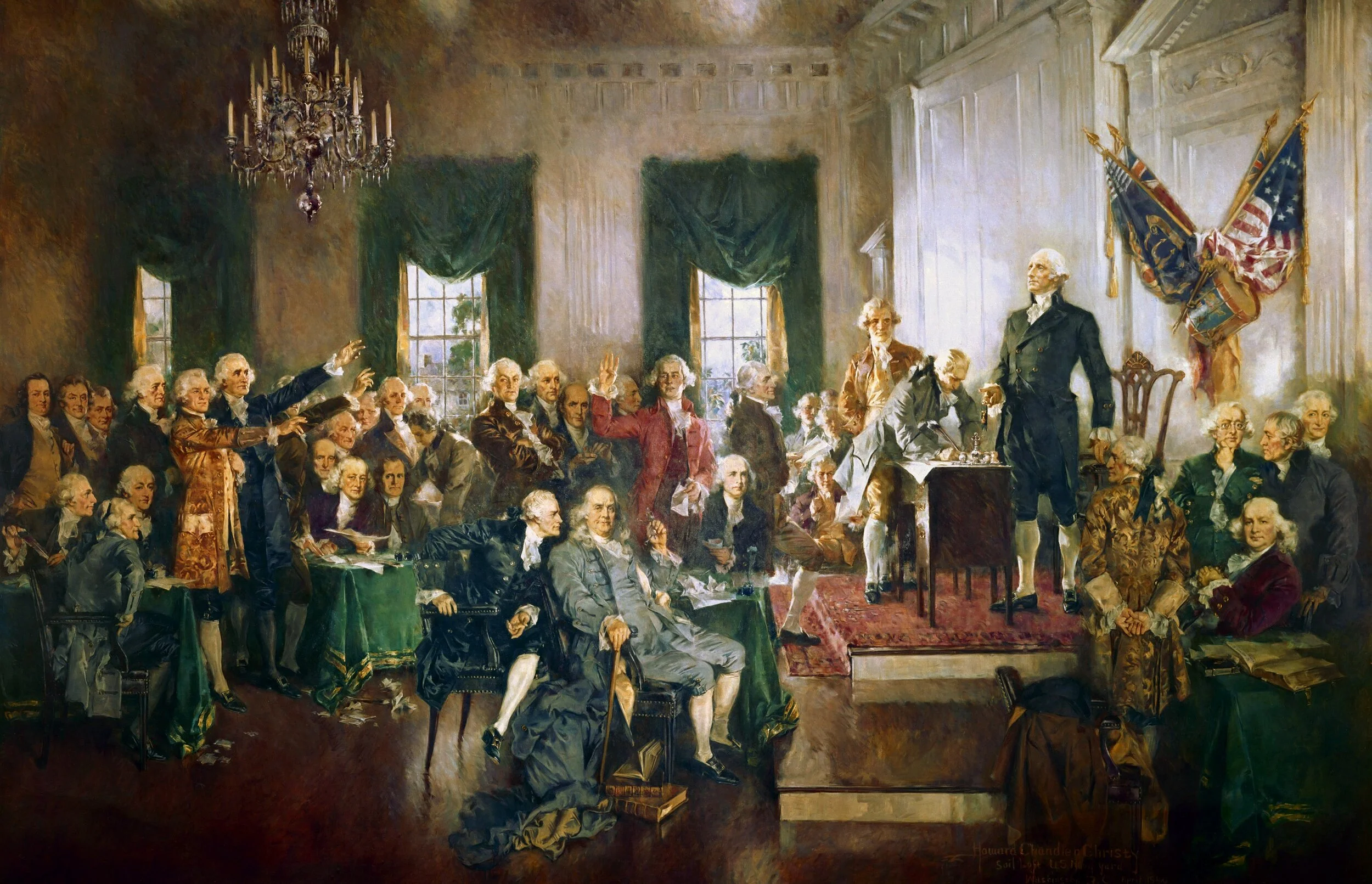Believe your own eyes
/Imagine a man on a long road trip who gets hungry and decides to stop at a diner on the roadside. The place where he stops is not a familiar national chain but a local greasy spoon. The man knows nothing about the place and hasn’t checked the Yelp ratings. But he’s confident of obtaining a nice meal because the words “Good Food” are emblazoned on the outside of the building.
Now suppose the man goes in and orders, and is promptly served a disgusting plate of food. You can decide for yourself whether the disgustingness is merely a viscous gravy or a bug in the salad, or something more appalling like a dirty band-aid or a human finger in his chili bowl.
The man picks around the edges of his unpalatable meal (He’s lost his appetite!) and then pays and leaves.
Now here’s the question.
As the man is driving away and reflecting on this experience, does he think, “That was awful!” Or does he think, “That was good food! The sign says so.”
Of course he does the first. Only a fool would allow the existence of words to overrule what experience and sense show to be real.
And yet, there are such fools.
The British humorist David Mitchell has taken on the phenomenon of public signs that express nonsense. Or as, Mitchell explains: “People think the mere act of writing something on something makes the thing they’ve written the thing on the thing they’ve written on it.”
https://www.youtube.com/watch?v=Dz1Hjpo_xgU
My reason for going down this rabbit hole is that many Americans seem to commit the error when it comes to our political reality vis a vis the constitution. They think if the constitution says something, then that thing is true. And they think it even if evidence to the contrary is overwhelming.
The dissonance is especially strong regarding the relationship between the national government and the states as defined by the 10th Amendment. That amendment, adopted along with nine others in 1791 by the first US congress, says:
“The powers not delegated to the United States by the Constitution, nor prohibited by it to the States, are reserved to the States respectively, or to the people.”
This amendment indicates that the national government is strictly limited to a few powers – those that are “delegated to the United States by the Constitution.” One would suppose that as the world modernized over two centuries time, that the small restricted role of the national government (still limited to the short list mentioned in the constitution) would seem pretty small. One would suppose that, when the Space Race became an issue in the 1950s, the national government said, “We can’t do that!” One would expect that, when the internet emerged in the 1990s, the national government once again searched the original constitution, found no metion of the internet there, and said, “Not our purview!”
But of course, that hasn’t been the case. When some new issue appears on the horizon, the national government eager takes control, not bothered in the least by the absence of any specific enumerated power to do so.
The language of the 10th amendment, restricting the national government to a proscribed and limited role, is like the “Good Food” sign outside the diner. The reality of an ever-expanding national government that has little to no respect for federalism is the glop of mashed potatoes the diner really served. The words don’t matter as much as the reality.
One final point.
Thre are constitutional apologists who say the 10th amendment sets the correct boundaries, but bad politicians have occasionally ignored it. I suggest that is wrong. Every time the national government asserts a larger role for itself, it does so with full consciousness of the constitution. They don’t ignore the 10th amendment. Rather, they find in it, or in some other part of the constitution an authorization to do what they want to do.
Below are a few important US Supreme Court decisions spanning the life of the nation. All of them deal, one way or another, with the balance of national versus state or local power. Most of them permit the national government to color outside the lines specified in the constitution.
You can click on the links to learn more about the cases.
Calder v. Bull 3 U.S. 386 (1798) – A Connecticut law concerning inheritance was deemed not to violate the federal prohibition against ex post facto law.
Martin v. Hunter's Lessee 14 U.S. 304 (1816) – A national treaty with Britain superseded a Virginia decision about property.
Gibbons v. Ogden 22 U.S. 1 (1824) – The Commerce Clause gives Congress power to regulate river traffic and overturn a Massachusetts contract.
Northern Securities Co. v. United States 193 U.S. 197 (1904) – The Commerce Clause gives Congress power to regulate railroads and overturn a New Jersey corporate agreement.
McCray v. United States 195 U.S. 27 (1904)
Hammer v. Dagenhart 247 U.S. 251 (1918)
State of Missouri v. Holland 252 U.S. 416 (1920)
Bailey v. Drexel Furniture Company 259 U.S. 20 (1922)
A. L. A. Schechter Poultry Corp. v. United States 295 U.S. 495 (1935)
United States v. Butler 297 U.S. 1 (1936)
Ashwander v. Tennessee Valley Authority 297 U.S. 288 (1936)
Carter v. Carter Coal Co. 298 U.S. 238 (1936)
Steward Machine Co. v. Collector of Internal Revenue 301 U.S. 548 (1937)
Helvering v. Davis 301 U.S. 619 (1937)
United States v. Darby 312 U.S. 100 (1941)
Morgan v. Virginia 328 U.S. 373 (1946)
Maryland v. Wirtz 392 U.S. 183 (1968)
United Transportation Union v. Long Island Rail Road Co. 455 U.S. 678 (1982)
Missouri v. Jenkins 495 U.S. 33 (1990)
New York v. United States 505 U.S. 144 (1992) – A national law compelling states to regulate nuclear waste was upheld, but one specific method of doing so was deemed a violation of 10th amendment limits of national power.
Printz v. United States 521 U.S. 898 (1997)
Chiefs of police in Montana and Arizona objected to a part of the Brady Bill compelling them to do background checks on gun purchases. The court ruled that the federal government could impose mandatory background check, but could not compel the states to do it.
Reno v. Condon 528 U.S. 141 (2000) – A national law limiting states’ use of private information (obtained from drivers’ license applications) was upheld.
So let’s understand that words are not always effective, and sometimes the reality is different from what the words indicate. Federalism in the United States has weakened over time, and in the 21st century, the state and local role is only what the national government allows. The 10th amendment is no guarantee of “Good Food.”










